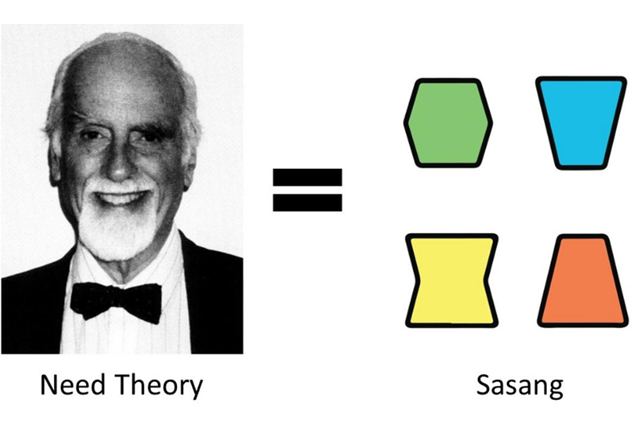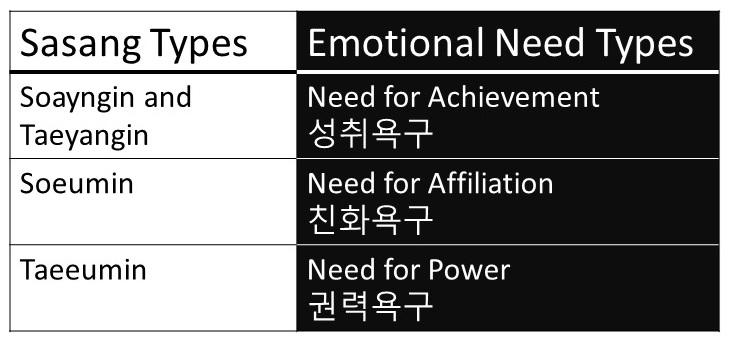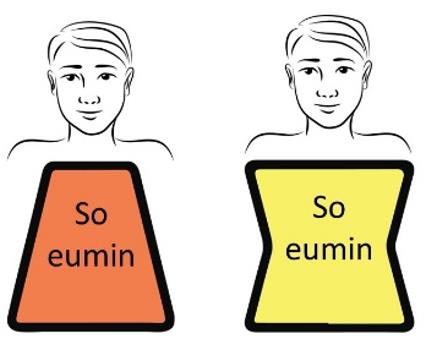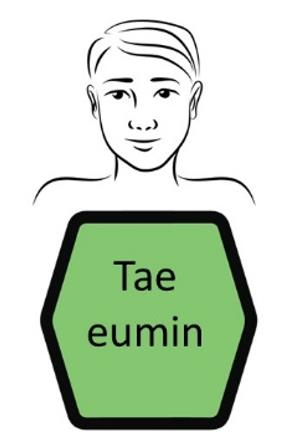
Human Motivation Is Grounded In Achievement, Power, and Affiliation
By David Lee, L.Ac.
David McClelland, an eminent expert in human motivation, made significant contributions during his tenure of 30 years at Harvard University, from 1956 to 1986. In his influential 1961 book, “The Achieving Society,” he posited that human motivation is grounded in three fundamental needs: achievement, power, and affiliation. These needs serve as major drivers of human behavior, exerting a substantial impact on relationships and overall success.
McClelland’s research revealed that nearly 80% of our social behavior can be attributed to these three core motivational drives observed across diverse groups worldwide. He emphasized that these drives take shape during early childhood, establishing patterns of thought, feelings, and values that subsequently influence energized behavior. Due to their recurrent nature, behaviors associated with these drives become predictable.
His work holds direct relevance to Korean Sasang Four Constitutional Medicine, validating the psychological characteristics associated with Sasang constitutions.
 Among the three lists provided, one typically emerges as the primary impetus for an individual’s actions. Habits, in turn, manifest as the outcomes of these internal motivations. Nearly everyone experiences strong urges for power, achievement, and affiliation at some point, as these needs are inherent within us to varying degrees. However, in approximately 80% of the population, one set of motivations tends to stand out more prominently than the others. It’s important to note that a strong agreement or disagreement with one or two keywords from the provided lists does not definitively categorize a person into a particular constitution. The expression of each characteristic varies within any constitution, often following a bell-curve pattern. Some individuals exhibit numerous extreme characteristics of a single constitution, while others display a blend of traits from multiple constitutions.
Among the three lists provided, one typically emerges as the primary impetus for an individual’s actions. Habits, in turn, manifest as the outcomes of these internal motivations. Nearly everyone experiences strong urges for power, achievement, and affiliation at some point, as these needs are inherent within us to varying degrees. However, in approximately 80% of the population, one set of motivations tends to stand out more prominently than the others. It’s important to note that a strong agreement or disagreement with one or two keywords from the provided lists does not definitively categorize a person into a particular constitution. The expression of each characteristic varies within any constitution, often following a bell-curve pattern. Some individuals exhibit numerous extreme characteristics of a single constitution, while others display a blend of traits from multiple constitutions.
 The Need for Achievement pertains to an innate desire to excel, succeed, and attain specific standards while constantly striving for improvement. Individuals driven by achievement motives orient themselves towards internal benchmarks of excellence. They harbor a strong aspiration to meet and surpass higher standards, continually enhancing their personal performance. In comparison, Taeyangins exhibit similar characteristics to Soyangins in this regard, albeit with heightened intensity.
The Need for Achievement pertains to an innate desire to excel, succeed, and attain specific standards while constantly striving for improvement. Individuals driven by achievement motives orient themselves towards internal benchmarks of excellence. They harbor a strong aspiration to meet and surpass higher standards, continually enhancing their personal performance. In comparison, Taeyangins exhibit similar characteristics to Soyangins in this regard, albeit with heightened intensity.
By amalgamating the following words, one can visualize the multifaceted elements that constitute an individual embodying the Need for Achievement: Pursuit of excellence, acceptance of challenges, competitive spirit, drive for efficiency, receptive to feedback, setting and striving for clear goals, commitment to continual improvement, embracing innovation, willingness to take moderate risks, dedication to optimal performance, ability to find efficient routes or shortcuts, self-reliant approach, and attainment of success at personal endeavors.
By integrating the provided words, one can conceptualize the intricate facets defining an individual characterized by the Need for Affiliation: an innate longing to establish and nurture connections with others, aiming for acceptance and approval within social circles.
The Need for Affiliation encapsulates a deep-seated desire to cultivate and uphold relationships with others, seeking acceptance and likability. Motivated by affiliation, individuals prioritize interpersonal connections, striving to create networks, support groups, and bonds based on cooperation and harmony. Their sensitivity towards others’ emotions leads them to prioritize human interactions over the task at hand.
Key elements that encapsulate the Need for Affiliation include the desire for a sense of belonging, value placed on familial bonds, emphasis on fellowship and camaraderie, nurturing friendships, maintaining regular contact and connections, building and fostering networks, cultivating meaningful relationships, engagement in social clubs, and dedication to teamwork and collaborative efforts.
 The Need for Power encompasses a profound aspiration to direct and influence others, assuming control and leaving a lasting impact on their lives.
The Need for Power encompasses a profound aspiration to direct and influence others, assuming control and leaving a lasting impact on their lives.
Motivated by the Need for Power, individuals are drawn to exert influence and make a difference. They derive satisfaction from a sense of power, achieved by having control over themselves, others, and various situations.
In amalgamating the provided words, one can vividly depict the intricate facets characterizing an individual embodying the Need for Power: aspiring to be at the forefront, empowering oneself and others, enabling and uplifting those around, advocating for significant causes, striving for a profound impact, seeking elevated status, projecting an impressive image, fostering leadership qualities, balancing authority without being overbearing, pursuit of power and influence, and aiming to be at the top of the hierarchy.
Given our common humanity, there’s an opportunity to enrich diagnostic criteria and enhance diagnostic accuracy by integrating insights from the Western psychological profiling related to the Sasang constitutions. It ultimately advances our East Asian medical practice.
































